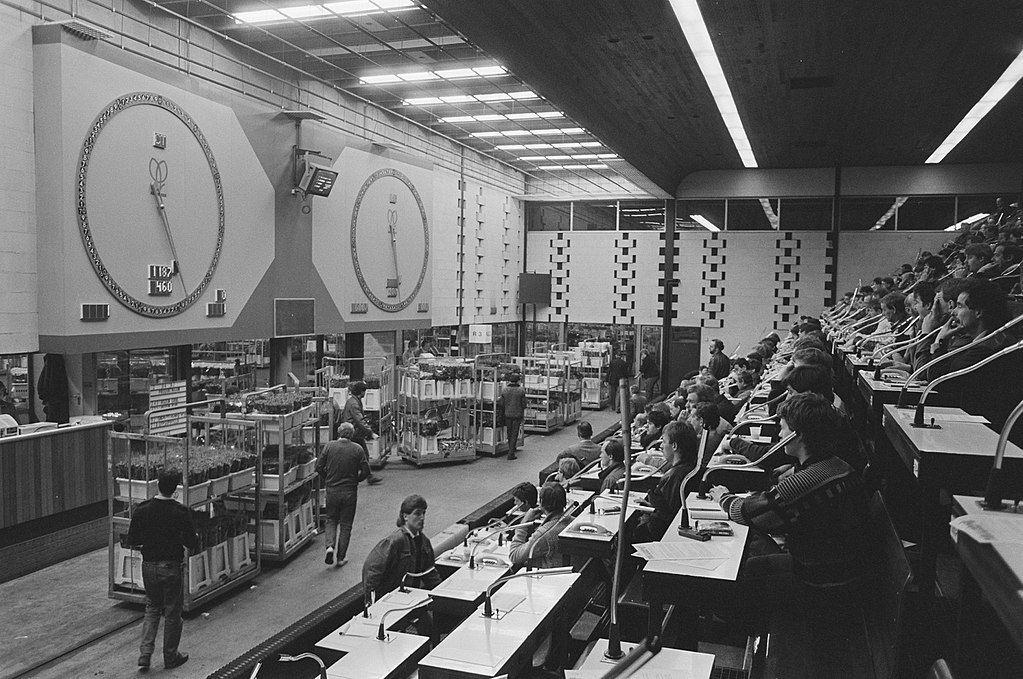How To Sell Tickets Fairly
Update: there’s a lively discussion at Hacker News and a follow-up post.
Earlier this week, millions of people tried to purchase Taylor Swift concert tickets at the same time. It was a complete fiasco. Ticketmaster crumbled under the high demand and everyone was angry.
Of course Ticketmaster bears primary responsibility, not just for this incident, but also for monopolizing a broken marketplace they are unmotivated and unlikely to fix.1 One big problem is in the structure of the sale itself: all tickets go on sale simultaneously.2 This creates the conditions for digital line cutting and stampedes, which then fuel a predatory secondary market. You could hardly create a more chaotic and user-hostile system if you tried.
On the other hand, selling tickets with a slow descending-price (or “Dutch”) auction would be much better for everyone except ticket scalpers. This was apparently how tulips used to be sold. Maybe this hasn’t caught on yet because auctioning concert tickets was protected by a patent that just expired in 2020.

Here is how I imagine the live concert ticket auction would work:
- Tickets go on sale for a high price per seat (say $2,000) six months before the concert date. The bare minimum ticket price is set at $20 (Kurt Cobain would have liked that). Every concert date and venue would be a separate auction.
- If tickets go from $2,000 to $20 linearly over 180 days, then every day the asking price for a ticket would go down by $11. Each hour ticket prices would drop by $0.46 ($1,980 / 4,320 hours); each minute, nearly a penny. The ticket sales page would show the current ticket price and the number of tickets left. What you pay for a ticket depends on when you buy it.
- 14 days before the concert the ticket price would be $174 (all fees and taxes included3). Someone buying 4 tickets on that day would first pre-authorize their credit card for $696. If approved, they could choose some available seats and make the purchase.
Two buyers might try for the same exact seats at the same moment, but that is much less likely in a slow single-bid auction like this. True, the deepest pockets would win the best seats, that is no different than now. Concerts in affluent areas might sell out earlier, but people living in areas with less might pay less too. The fair price for each seat in each venue would be determined naturally by the local market, an economist’s dream scenario. Scalping tickets or running bot farms to snatch tickets early would be risky and unprofitable.
Rather than a mad crush of millions on day one, the system would handle a reasonable volume of transactions per hour. Lower peaks would translate into lower costs. The platform could embrace automation and offer an open API rather than fighting an anti-cheating arms race. Fans would be happier for not going through “several bear attacks” for their tickets, and artists would keep more of what belongs to them. I’m not naïve though; the most serious barriers to this becoming a reality are probably not technical.
Shameless plug: I understand how to make and launch exactly this kind of system, at least technically. If you want it built, please contact me.
Footnotes
-
Ticketmaster would rather that you blame “evil bots”, hilariously. In their help article “Why am I getting a ‘blocked’, forbidden’, or ‘403 error’ message” it says:
↩Sorry, you’ve been temporarily blocked from buying tickets because you may have refreshed your browser too frequently. When that happens our system thinks it’s a bot, an evil automated program trying to scoop up tickets. And we automatically block bots.
-
For popular events, Ticketmaster uses something they call the Smart Queue. Even in this recent case, there was an attempt to spread out the tsunami wave with a “Verified Fan Presale”. These measures were, shall we say, inadequate. ↩
-
People hate fees and it makes them feel ripped off. It also makes pre-authorization work as expected. Since the price is absolutely flexible, then you could calculate the pre-tax “price” after the fact. This is all paid for by money that would have otherwise gone to scalpers and the “evil bots”. ↩